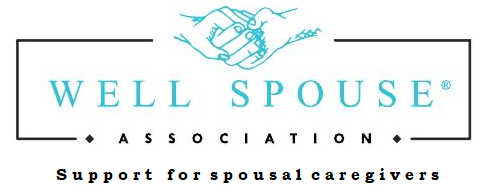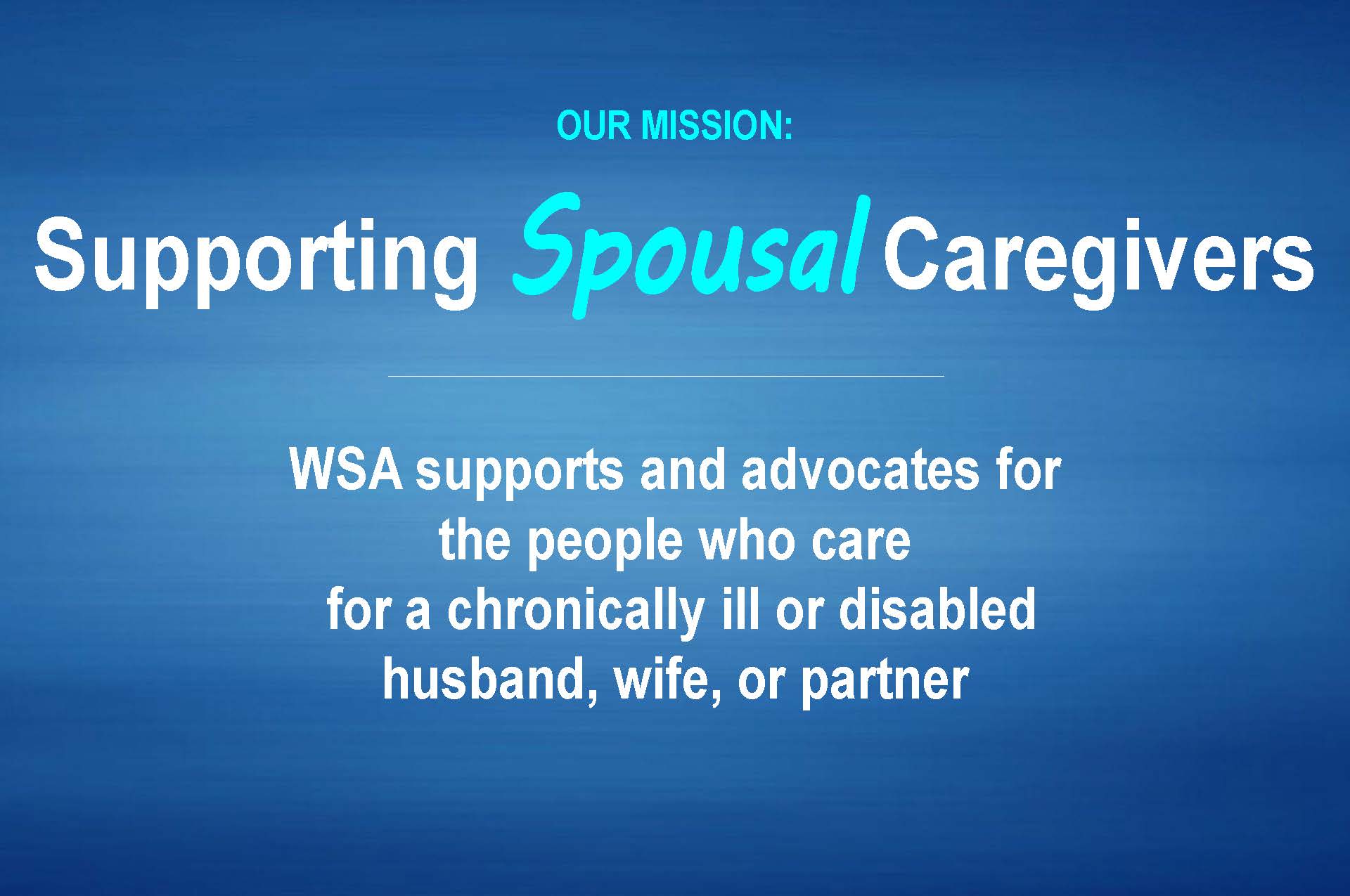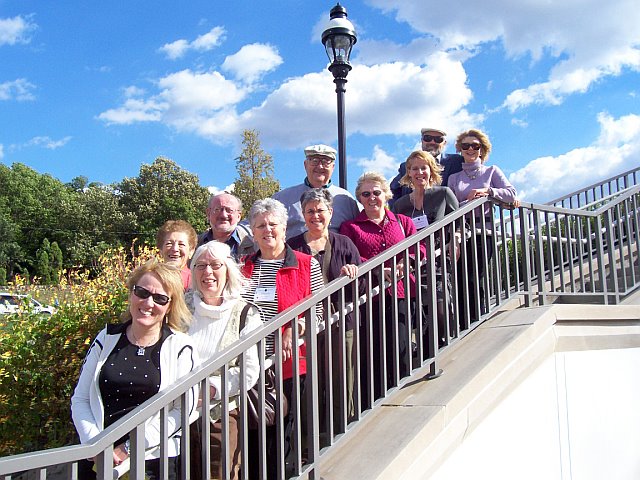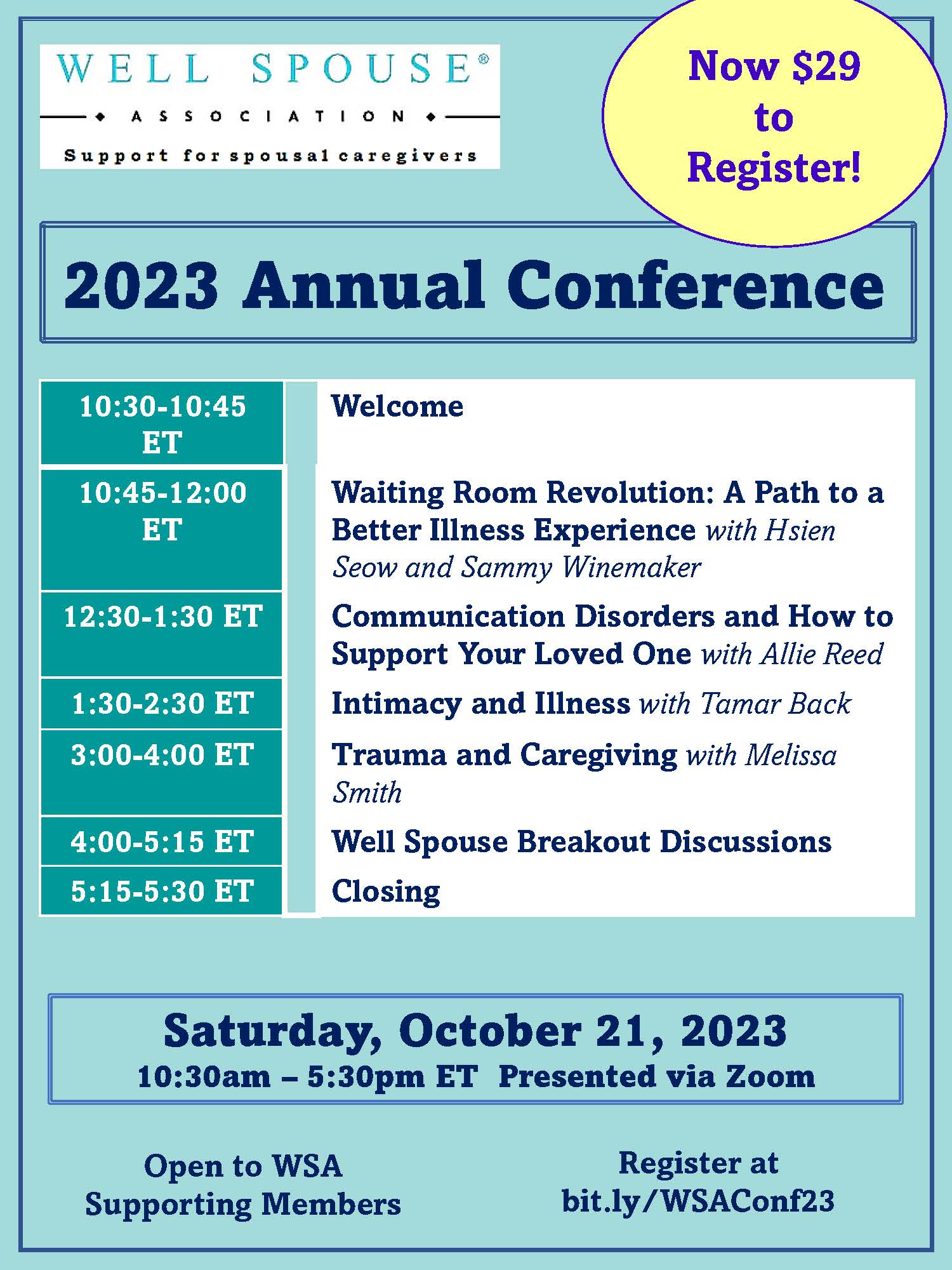By Richard Anderson
Are you trying to help a parent, relative or friend whose spouse or partner is chronically ill, disabled, or deceased?
As the administrator of the Well Spouse® Association (WSA) website, frequently I see people trying to join, giving as their reason: "to help my mother (father) get over my other parent's chronic illness or death," or else as a friend. "to help my friend (or workmate) who is looking after her/his husband/wife/partner."
Those are very laudable reasons for joining a support group. However, people like this who want to help do not realize the WSA is just for spousal caregivers, as I write them to explain.
Why a place only for husbands, wives or partners of persons with chronic illness and/or long-term disability?
Spousal caregivers are different from other family caregivers... There are several reasons:
1. Disease organization support. There are support groups for all kinds of diseases and conditions, and even organizations for people with rare diseases. But they are not comfortable in dealing with caregiver issues - they are focused on the particular illness, and on those who have it.
2. Family (not spousal) caregivers support. There are support groups for family caregivers - in person, or more likely, over the Internet, in message boards like the WSA Online Forum, but they often avoid dealing with spousal caregiver issues. The conversation tends to focus on the experiences in caring for a child or a parent. Even if the majority of the group members are spousal caregivers, but there are still other family caregivers in the group, it's the issues of the latter that get discussed.
3. Realizing one is a caregiver. Spousal caregivers take the longest of all family caregivers to self-identify.
4. Intimacy relationship. Because the intimacy relationship is more intense than other family caregiver relationships, the sudden or gradual loss of it caused by a chronic illness or disability in the husband, wife or partner provokes deeper emotional upset - a process called "rolling grief" or ambivalence.
In short, it takes one to know one! Peer support is the best way to go, and the spousal caregiver feels safe talking to his/her peers.
So what can others do?
1. Be positive, tell them about the WSA. Urge the spousal caregiving / surviving parent, relative or friend to get counseling, join a support group for spousal caregivers (right now the Well Spouse® Association is the only one that helps people dealing with _any_ disease or disability in a spouse or partner) and if at all possible, take up a new activity for themselves, when they are ready, as a sign they are trying to regain balance in their life.
2. Help them deal with their feelings. Nothing will ever be the same after their spouse's chronic illness or death, but dwelling on it, or searching out reasons why they should or should not have committed errors of commission or omission cannot help. If the caregiving / surviving spouse, or you as a parent, child , relative or friend, finds him / herself in this position, and feels anger about others in the family or friends, then it's a good idea to search out help to deal with those feelings.
3. Help them to get help. If the spousal caregiving / surviving parent, child, relative or friend will not listen to you in your efforts to help, ask a third person to help: a friend or a respected professional caregiver (doctor, nurse, therapist, counselor, religious leader)
4. Let them know they are not alone. Arrange for a gift membership for the person in the Well Spouse® Association.
5. You can't fix it all... And finally, if you can't do anything to change the situation after many tries, stop trying. Choose to revisit it later, and maybe you'll find that the expression "time heals" did come true after all, for your loved one.




